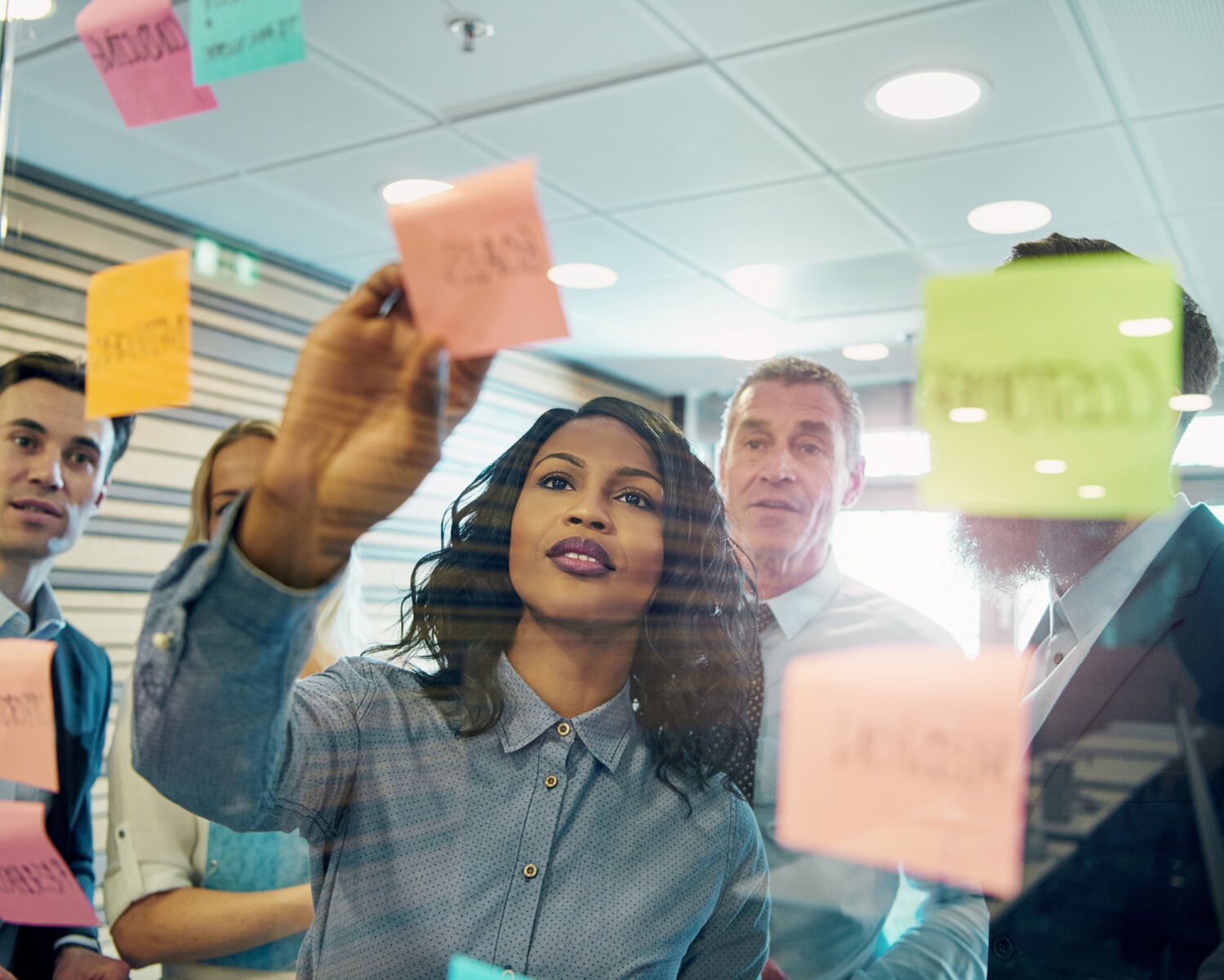Five essential steps for your next strategic workshop
At Infinity, we help our global health and business clients address a range of challenges – whether it’s identifying barriers and potential solutions to healthcare access, or developing a corporate brand strategy.
Strategic workshops are just one way that we can help groups problem solve and make critical decisions. Whilst every event will have a different goal and outputs (e.g. gaining consensus, building team skills, or gathering input or buy-in for clinical, corporate or global health programmes) there are some general principles that we have found apply to them all.
Set a clear agenda
Start by talking with your co-organisers. Make sure you are all on the same page about workshop goals and objectives. With your aims clearly in mind, you can determine which discussion points and outcomes are highest priority. Pre-reads can offer essential background for organisers and attendees, help everyone understand the goals and expected outcomes of the meeting, and get mentally prepared. Your attendees may not have much time to prepare for the workshop, therefore be smart and concise, and use pre-reads to spark their interest. Sometimes a short pre-workshop survey can help to gather valuable insights from your audience that may then be used to tailor workshop content and activities.
Make engagement a priority
Strategise with your fellow organisers and facilitators to make sure your programme is engaging from start to finish. Use icebreakers to help participants feel comfortable sharing their perspectives. Mix up the format to keep energy levels high. You could even try switching from presentations to interactive activities and using both small and large group discussions. This will allow you to hold people’s attention and encourage participants to contribute in a variety of ways throughout the session.
Select and define roles in advance
No one person can run an entire workshop effectively by themselves, and it’s important to approach people early about taking on roles. A facilitator ensures that everyone in attendance has an opportunity to speak or contribute and helps to summarise discussions without taking a position. Note-takers, meanwhile, track discussion points and record assigned actions that will translate dialogue into deeds.
In high-level meetings, moderators, who should be knowledgeable about the subject matter, can help steer the conversation and encourage debate while remaining unbiased. And remember, if your workshop includes a mix of larger and smaller group sessions, you may want to plan for individual group moderators and note-takers. You might also want to invite each team to share conclusions with the wider group.
TOP TIP: We recommend working with an external agency with trained facilitators to achieve the best outputs. Facilitation requires specific skills and experience such as neutrality and the ability to be focused on the goals and objectives. A good helping of emotional intelligence is usually required to manage different personalities and encourage the quieter ones to share their views.
Know your attendees
Workshops are all about bringing people together to address challenges creatively. The best ideas come from bringing a variety of participants with different backgrounds and skills together. When planning a meeting, however, make sure you think about how to facilitate discussion among people from diverse backgrounds. Think carefully about cultural, linguistic, or geographic differences that might arise. Questions to consider might be: Do you need translators? Can you brief speakers on possible cultural or idiomatic differences that could cause confusion? Taking small steps, like providing materials that can be reviewed in advance, can offer a shared orientation and vocabulary that will help to bridge any gaps in communication.
And finally…
Don’t forget online etiquette
We all understand the basics of meeting etiquette, but what about when that meeting happens online? For virtual or hybrid events, share housekeeping rules, do and don’ts for video sharing, using the chat or raising your hand and offer your attendees helpful guidance. For example, suggest a contact person if they encounter technical difficulties and consider providing a phone line if they struggle to connect through video conference software. Be aware that bandwidth problems can make video more challenging for some. We usually recommend that people turn off their cameras when others are presenting or sharing slides, and turn video back on again for discussions. Finally, if you are planning a hybrid event with a combination of in-person and virtual participation, make sure there’s at least one designated ambassador to monitor the virtual discussion, and bring up comments and questions to the in-person venue, to keep these two formats connected.
At Infinity Communications, we have developed extensive expertise in organising and facilitating strategic health workshops. Contact us if you need any support to plan your next meeting!
Author: Anne Legendre, Associate Director at Infinity Communications








